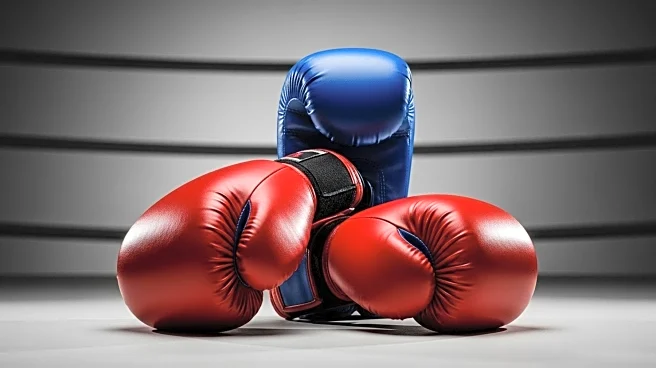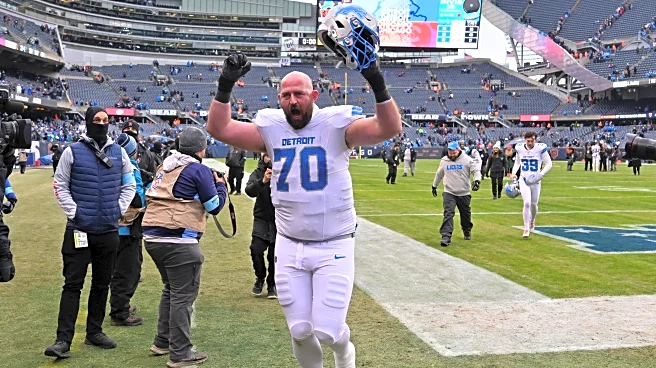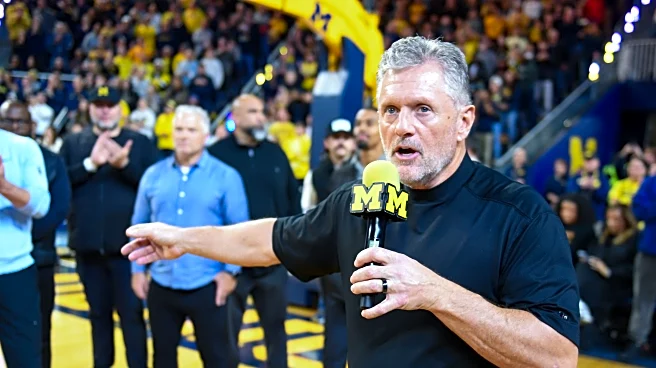What's Happening?
Alex Pereira, a former UFC middleweight and light heavyweight champion, is set to face Magomed Ankalaev in a rematch at UFC 320 in Las Vegas. Pereira lost his light heavyweight title to Ankalaev in March at UFC 313, a fight where he was reportedly not at his best due to a series of injuries and illnesses. Pereira's manager, Jorge Guimarães, noted that Pereira was unusually vocal about his physical condition before the fight, which is atypical for the fighter known for his resilience. Pereira's physical therapist, Kaue Yub, revealed that Pereira was dealing with a stress fracture in his tibia and had been sick shortly before the fight. Despite these challenges, Pereira is preparing for the rematch with a renewed focus on recovery and strategic adjustments.
Why It's Important?
The rematch between Pereira and Ankalaev is significant for the UFC light heavyweight division, as it could potentially alter the rankings and future title opportunities. Pereira's acknowledgment of his previous physical limitations and his efforts to address them highlight the importance of athlete health and recovery in competitive sports. A victory for Pereira could reestablish his dominance in the division, while a win for Ankalaev would solidify his position as a top contender. The outcome of this fight could influence matchmaking decisions and the trajectory of both fighters' careers.
What's Next?
As Pereira prepares for the rematch, his team has emphasized a more measured approach to training and recovery. This includes a less hectic travel schedule and a focus on healing past injuries. The fight's outcome will likely impact future title shots and the fighters' standings within the UFC. Stakeholders, including fans and UFC officials, will be closely watching to see if Pereira's strategic changes pay off in the octagon.
Beyond the Headlines
Pereira's situation underscores the broader issue of athlete burnout and the physical toll of maintaining a rigorous fight schedule. His case may prompt discussions within the MMA community about the balance between competition frequency and athlete health. This could lead to changes in how fighters manage their careers and training regimens to ensure longevity and peak performance.










